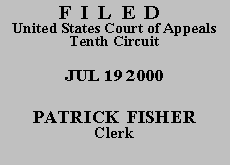

| GENE DELANEY,
vs.
DEERE AND COMPANY and
JOHN DEERE LIMITED _______________________________ KANSAS TRIAL LAWYERS ASSOCIATION,
Amicus Curiae.
|
|
Larry A. Withers (Alan R. Pfaff, with him on the brief), Kahrs, Nelson, Fanning, Hite & Kellogg, L.L.P., Wichita, Kansas, for Defendants-Appellees.
William Pauzauskie, Topeka, Kansas, for Amicus Curiae Kansas Trial Lawyers Association.
Plaintiff-appellant Gene Delaney appeals the district court's grant of summary judgment to defendants-appellees Deere and Company and John Deere Limited ("Deere"). The district court dismissed Mr. Delaney's product liability claims on the basis that Kan. Stat. Ann. § 60-3305(c) (1994) does not require a manufacturer to either warn or protect against hazards that are open and obvious, and that Restatement (Second) of Torts § 402A comment j establishes as a matter of law that an adequate warning precludes a finding that a product is in defective condition. See Delaney v. Deere & Co., 985 F. Supp. 1009, 1015-16 (D. Kan. 1997).
We certified the following questions to the Supreme Court of Kansas while retaining appellate jurisdiction:
"Does Kan. Stat. Ann. § 60-3305(c) apply to a manufacturer's duty to warn or protect against hazards on a multiple use product, or only to the duty to warn, as implied by Siruta?
Does Kansas follow the portion of comment j of the Restatement (Second) of Torts § 402A, which provides that a product bearing an adequate warning is not in defective condition, or instead, would Kansas now adopt comment l, which provides that an adequate warning does not foreclose a finding that a product is defectively designed?"
Delaney v. Deere & Co., No. 97-3321, 1999 WL 458626, at *1 (10th Cir. Jan. 19, 1999) (unpublished).
In response to our questions, the Kansas Supreme Court held that (1) Kan. Stat. Ann. § 60-3305(c) applies only to the duty to warn, (2) Kansas does not follow the portion of comment j of the Restatement (Second) of Torts § 402A, which provides that a product bearing an adequate warning is not in defective condition, and (3) Kansas would not adopt comment l of the Restatement (Third) of Torts § 2 which provides that an adequate warning does not foreclose a finding that a product is defectively designed. See Delaney v. Deere & Co., No. 82,630, 2000 WL 263240, at *10, 13, 18 (Kan. Mar. 10, 2000). Kansas retains the consumer expectations test in determining whether a design defect exists. See id. at *15.
In light of the foregoing, the district court's grant of summary judgment in favor of Deere must be reversed.(1)
REVERSED AND REMANDED for further proceedings consistent with this opinion.
1.No other grounds support the grant of summary judgment. In his memorandum in opposition to summary judgment, Mr. Delaney did not include "a concise statement of material facts as to which [he] contends a genuine issue exists," as required by D. Kan. R. 56.1. Instead, he incorporated by reference various affidavits. See Aplt. App. at 172. The requirement of the local rule is not satisfied by wholesale incorporation by referencea party opposing summary judgment has the burden to identify the facts in dispute and reference portions of the record so-indicating. See Adler v. Wal-Mart Stores, Inc., 144 F.3d 664, 671-72 (10th Cir. 1998); Gardels v. Central Intelligence Agency, 637 F.2d 770, 773 (D.C. Cir. 1980) (construing local rule requiring similar statement by party moving for summary judgment). That said, the district court indicated that it would not grant summary judgment on this basis, see Aplt. App. at 622, and it properly considered all of the summary judgment evidence. See Delaney, 985 F. Supp. at 1010 n.1. We reject Deere's suggestion that the expert's affidavit could not be considered on summary judgment. While a party may not defeat summary judgment by contradicting deposition testimony in a subsequent affidavit, new evidence may furnish a good faith basis for the inconsistency. See Rios v. Bigler, 67 F.3d 1543, 1551 (10th Cir. 1995).